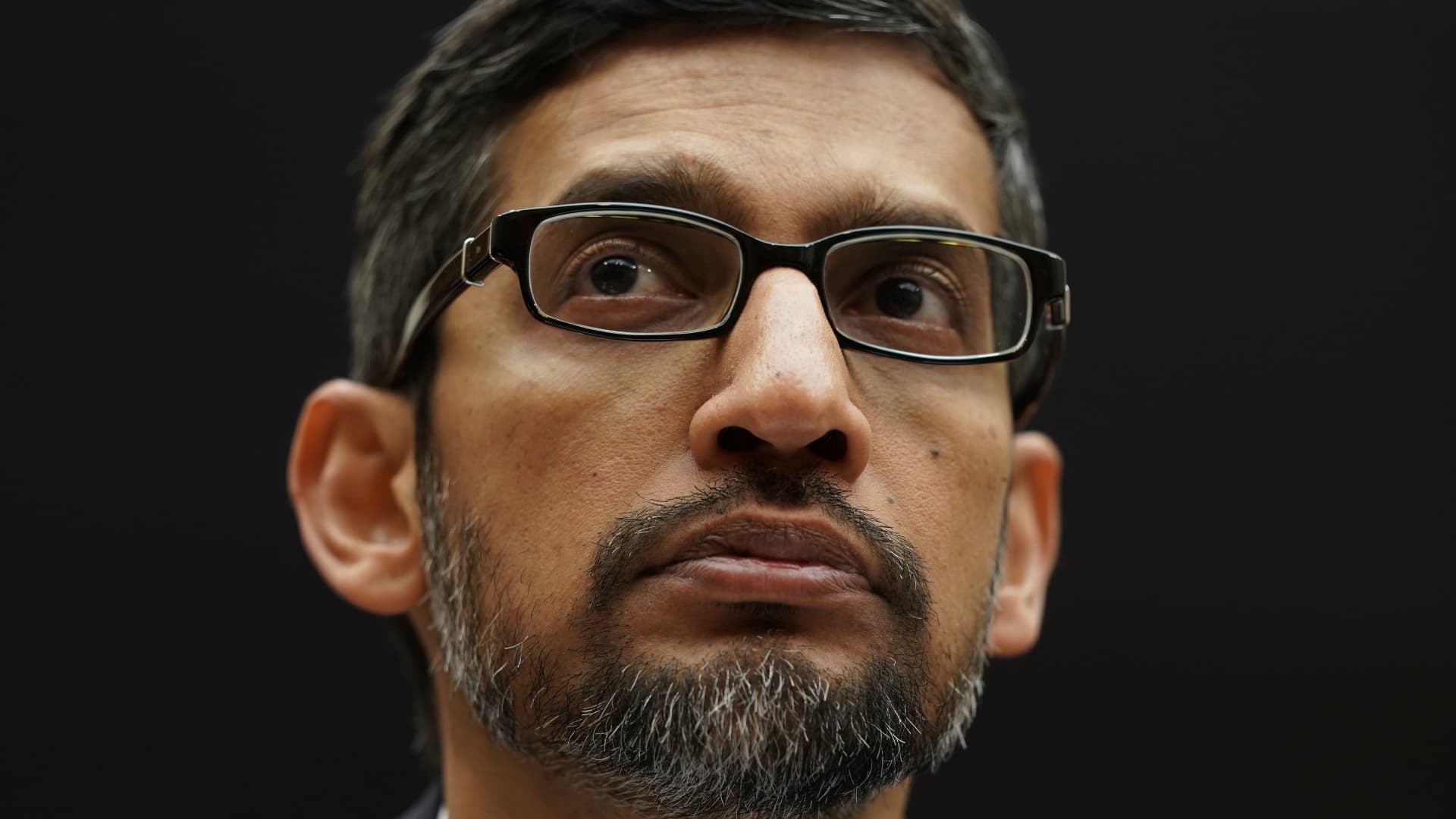Google CEO Sundar Pichai appeared before the House Judiciary Committee at the Rayburn House Office Building in Washington, DC. The recently released decision from a federal judge has narrowed the case that states and the Department of Justice can make in the upcoming antitrust trial against Google, set to begin on September 12. While this is a significant win for Google, they will still have to face other claims brought by the enforcers during the trial.
D.C. District Court Judge Amit Mehta granted Google’s motion for summary judgment in part, in the cases brought by the Department of Justice and a coalition of state attorneys general. Both cases accused Google of illegally maintaining a monopoly by restricting rivals from search distribution channels. Although the judge allowed the shared argument from the enforcers to move forward, he dismissed the states’ claim that Google unfairly harmed search rivals such as Yelp and Tripadvisor by designing search result pages that lowered their visibility.
Judge Mehta also narrowed the DOJ’s case by removing arguments regarding certain agreements made by Google for its Android mobile operating system, Google Assistant, and internet of things devices. He also removed arguments related to how Google managed its Android Open Source Project. The DOJ chose not to oppose these particular points after Google filed the motion on summary judgment. However, Mehta denied Google’s motion for summary judgment on both enforcers’ claims that Google used exclusive dealing arrangements to violate anti-monopoly law, stating that there are genuine disputes of material fact that warrant a trial.
Regarding the states’ claims about Google’s alleged anticompetitive behavior around its search ad tool SA360, Mehta stated that there remains a genuine dispute of material fact regarding the anticompetitive effect of Google’s disparate development of SA360’s ad-buying features. Therefore, this claim is allowed to move forward.
In 2020, the Department of Justice and a bipartisan group of attorneys general from 38 states and territories, led by Colorado and Nebraska, filed separate antitrust suits against Google, which were later combined for pretrial purposes. The DOJ’s complaint focused on Google’s alleged use of exclusionary contracts to control important channels for distributing search engines, thereby maintaining its monopoly power. The states made similar arguments while adding additional points to address core arguments against Google made by its longtime opponents.
Although the states will still be allowed to bring claims that Google used its search ad product to disadvantage advertisers, they will no longer be able to bring the claim that Google harmed competition by designing its search results to push down competitors’ results. This decision by the judge is a setback for companies like Yelp, who have been fighting for more than a decade to challenge the webpage design of Google’s search results.
Google’s president of global affairs and chief legal officer, Kent Walker, expressed appreciation for the court’s decision to dismiss claims regarding the design of Google Search, emphasizing that Google’s engineers build Search to provide the best results and assist users in finding the information they need. He further stated that Google promotes and distributes its services legally and in a pro-competitive manner.
Colorado Attorney General Phil Weiser expressed his satisfaction with the decision, stating that the multistate attorneys general lawsuit will proceed to trial in September, allowing them to establish Google’s pattern of illegal conduct that harms consumers and competition.
The Department of Justice has not yet responded to the decision. This story is still developing, and updates will be provided in the future.
Denial of responsibility! VigourTimes is an automatic aggregator of Global media. In each content, the hyperlink to the primary source is specified. All trademarks belong to their rightful owners, and all materials to their authors. For any complaint, please reach us at – [email protected]. We will take necessary action within 24 hours.


